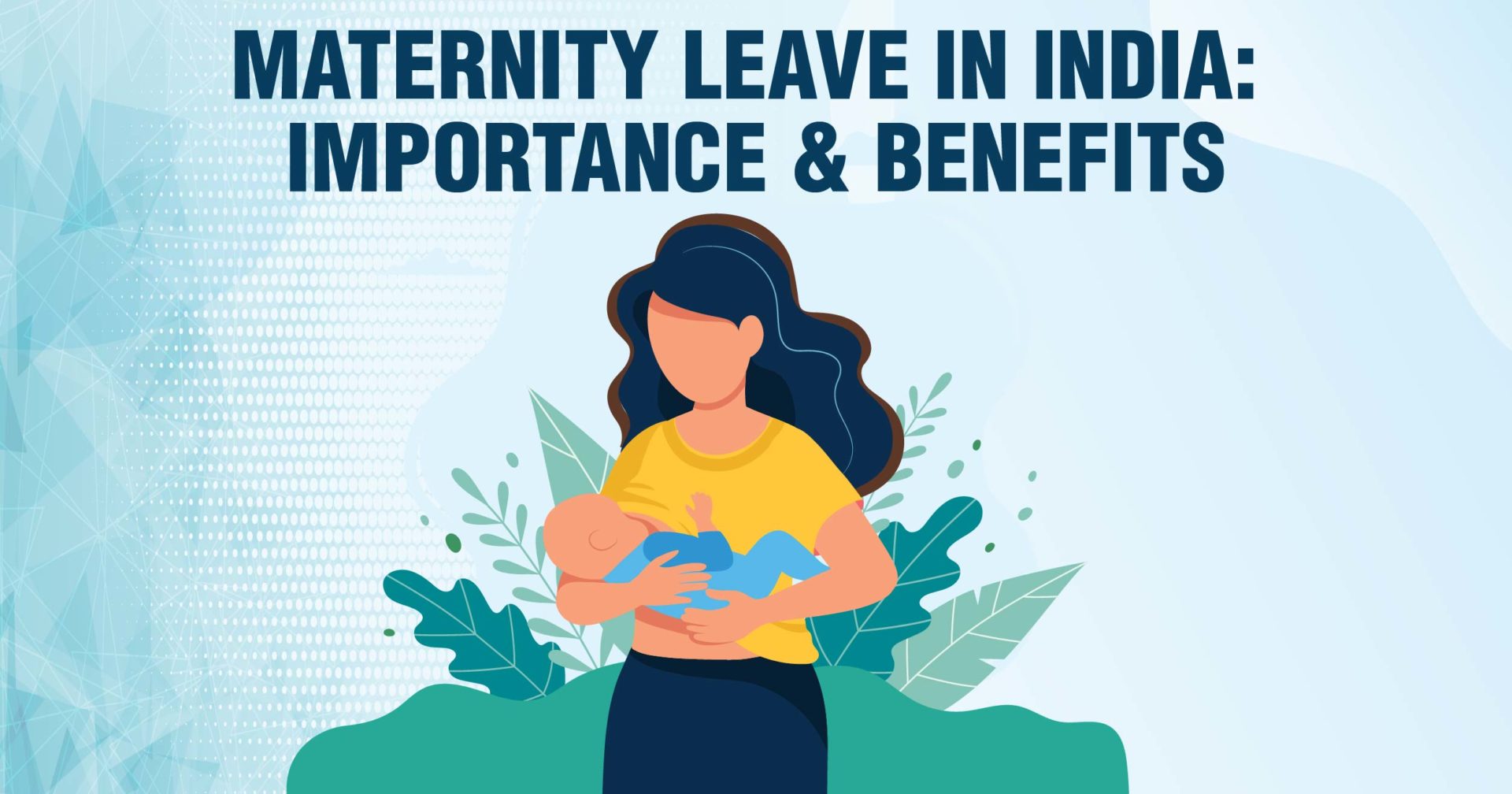By Sharanya Venkataraghavan
With women entering the workforce, they have always been at war with the clock to balance their work-life with their personal. This greatly hinders their professional growth and often dissuades women from professional success.
In a bid to better the situation of women in the workplace especially when pregnant, the Government of India passed the Maternity Benefit Act, 1961 which was amended in 2016 to be in its current form. The law has extended Maternity Benefits to a total of 26 weeks and has made workplaces more flexible for women who have young children, especially those who are still breastfed. It also includes women who adopt or have children via surrogacy.
Below are some important points on the current position of Maternity Benefits in India.
Who can apply for maternity benefits?
Any woman who is employed at any establishment, directly or through an agency for wages who has worked at least 80 days in the last 12 months and is pregnant. Adoptive and Commissioning mothers may also apply for Maternity benefits or paid maternity leave, although differently structured.
A contractual, temporary or casual worker is also entitled to Maternity benefits given that they have worked the required 80 days in the past 12 months.
How long is the period of Maternity leave?
As per the amendment, a woman may take up to 26 weeks of paid Maternity leave with a maximum of 8 weeks before the date of expected delivery. However, one may choose to take the entire 26 weeks after delivery as well or choose to take less than the total of 26 weeks. However, a woman with two or more children would only be entitled to 12 weeks of paid leave.
How will the salary be calculated for the period of Maternity Leave?
An average daily wage will be calculated using the wages earner over the last three months of working at the establishment or INR 1 per day will be paid over the course of the maternity leave, whichever is higher. The calculation will not include any bonuses or incentives received over the period of calculation.
What if the woman has a miscarriage?
In the event of a miscarriage, the woman is entitled to 6 weeks of Maternity Benefits from the day of the miscarriage.
What are the maternity benefits for adoptive and commissioning mothers?
An adoptive mother who has adopted a child below the age of 3 months is entitled to 12 weeks of paid leave from the day of the child being handed over. For a commissioning mother i.e. biological mother who uses her egg to create an embryo implanted in another woman is also entitled to the 12 weeks of paid leave from the child being handed over.
How do I inform my employer that I will be going on Maternity Leave?
One must give in writing in the format prescribed by the organisation informing that they will not work for the period and require to be paid for the same. If not given before delivery, the notice may be given as soon as possible after the delivery for the post-delivery period.
When will I receive my salary for the period of the maternity leave?
Once proof of delivery is provided, the organisation must pay in advance for the period of maternity leave preceding the delivery. Once proof of delivery is provided, the organisation must pay within 48 hours of the proof being provided. It is also to be noted that the absence of a notice doesn’t disentitle a woman from Maternity Benefits.
What if I’m suffering from any pregnancy related illnesses?
On providing proof of any pregnancy-related illnesses, one’s Maternity benefits period may be extended.
Can I be fired for being on Maternity Leave?
A woman cannot be fired while on Maternity Leave solely on basis of the absence. However, if fired for other reasons, one may still be entitled to the whole Maternity benefits depending on the reason for dismissing. For example, being dismissed on grounds of gross misconduct disqualifies access to Maternity Benefits.
What other benefits do I receive?
A woman may receive two nursing breaks till her child is 15 months old, additional to the regular breaks.
Any workplace with more than 50 people will also be mandated to establish creches and the mother will be allowed up to 4 visits a day to the creche in addition to the regular and nursing breaks.
A medical bonus is also to be paid by the employer if no pre-natal confinement and post-natal care is provided for by the employer free of charge.
Can I work-from-home beyond my Maternity Benefits period?
The law also allows employers to permit women employees to work from home in addition to the maternity benefit period if the nature of work allows that. This may be for a period mutually agreed upon by the employer and the employee.
What can I do if I’m denied Maternity benefits?
One can approach the Labour Court in the case that the employer denies you the maternity Benefits guaranteed under the Maternity Benefits Act. The labor court can hold the employer liable to imprisonment for 3 months, fine the employer with an amount up to Rs. 5000, or both, as per the rules for maternity leave in India.
What can I do as an employer?
An employer must inform all female employees of the Maternity benefits available to them. You mustn’t allot them any work that could potentially harm the fetus or the mother that are arduous such as standing for long hours etc. and will not allot them any works for 6 weeks after the delivery. All employers with more than 50 employees must establish a creche and provide the women with appropriate number of breaks, as per the law. Additionally, an employer must ensure their HR Polices are up to date with the latest laws on Maternity Benefits.


